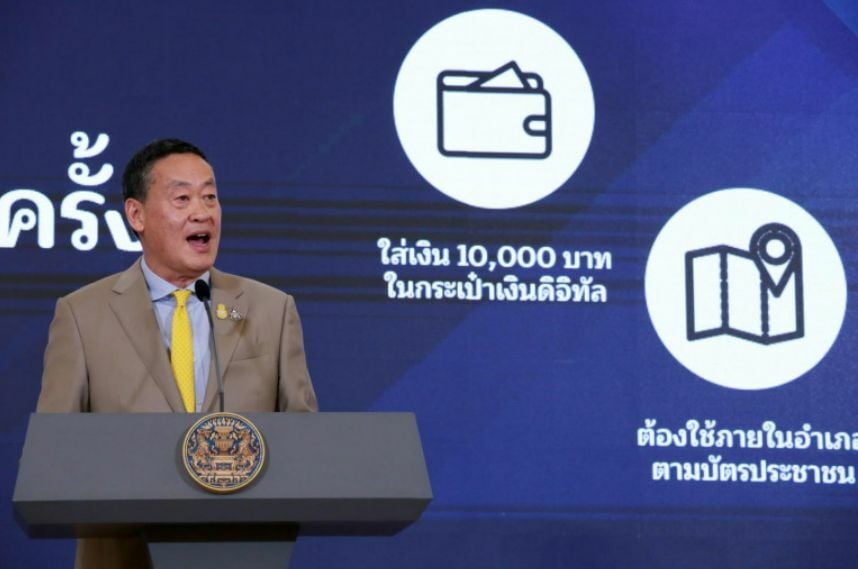Debate over Thai government’s digital wallet handout impact on public debt

The Thai government’s proposed 10,000-baht digital wallet handout has sparked debate, with concerns regarding its potential impact on public debt. Deputy Finance Minister Julapun Amornvivat stated that this economic stimulus is necessary as economic growth has averaged only 2% annually over the past decade, insufficient to support the country’s ageing population in the future.
With low GDP growth, the government’s public debt-to-GDP ratio will also increase. If GDP growth remains less than 5%, public debt could exceed 70% of GDP by 2027, surpassing the sustainable limit set by the State Fiscal and Financial Discipline Act.
Opposition parties and economists have questioned this urgency, noting that, although stagnant, the Thai economy has not contracted as seen in other countries that have implemented cash stimulus.
The government’s medium-term fiscal plan (MTFP) might need revision following the proposal to borrow 500 billion baht to fund the digital wallet scheme. The current MTFP projects public debt at 62.9% of GDP in 2023 and rising to 64.8% in 2027, with economic growth projected to be between 3.2% and 3.4% from 2024 to 2027. However, these figures did not account for the 500-billion-baht loan for the digital wallet project.
Nattaporn Triratanasirikul, deputy managing director at Kasikorn Research Center (K-Research), believes that the government still has room to borrow 500 billion baht domestically. With this new round of borrowing, the public debt-to-GDP ratio is expected to rise from 66% to 67%, up from the current 61%.
Uncertainties remain about the timing of the handouts with the bill to borrow 500 billion baht requiring parliamentary and Senate approval. The government’s digital wallet scheme is anticipated to increase public debt, which, under the revised spending plan, would total 64% of GDP by the end of next year, still under the 70% ceiling.
Populist stimulus risks
Critics have warned about the impact of borrowing for populist policies on fiscal sustainability. Despite this, some analysts and businesses believe that the digital wallet handout will increase consumer purchasing power and boost GDP, reported Bangkok Post.
The challenge of funding these stimulus policies could become more problematic due to potential legal challenges. Opposition parties are citing sections of the Constitution and the State Fiscal and Financial Responsibility Act dealing with state funding and emergency funding limitations.
BMI Research, a unit of Fitch Solutions Group, reported that Thailand’s government debt as a share of GDP surged to 61% in fiscal 2022, compared with 41.2% before the pandemic. The government’s focus on populist policies to address economic performance is reminiscent of the Thaksin Shinawatra tenure from 2001 to 2006. These policies should support growth in the medium term, but the bigger concern is fiscal sustainability.
If the government borrows an additional 500 billion baht, public debt may increase from 62.1% of GDP to 65%. This could result in Thailand’s credit ratings being downgraded, creating further concerns for the country’s fiscal future.
Latest Thailand News
Follow The Thaiger on Google News:


























